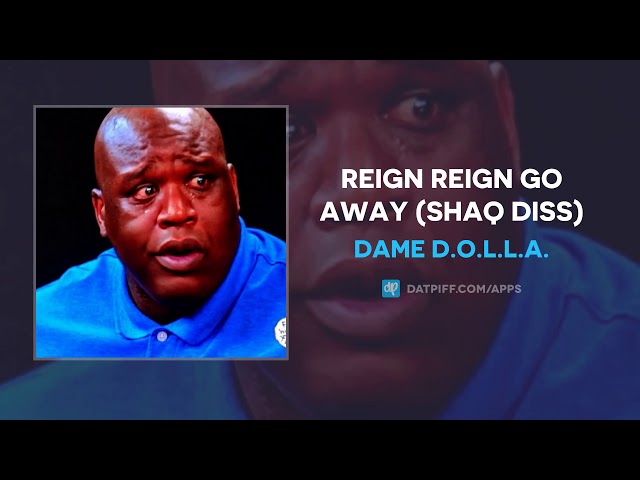Microsoft Activision Deal Faces FTC Appeal: A Deep Dive

Table of Contents
The FTC's Concerns and Arguments
The FTC's primary concern centers around the potential for anti-competitive practices and the creation of a monopoly within the gaming market. The acquisition, they argue, would give Microsoft undue control over key gaming franchises, particularly the immensely popular "Call of Duty" series, impacting market share and potentially harming consumers. The FTC’s antitrust lawsuit alleges that the merger would substantially lessen competition, resulting in several negative consequences:
- Reduced competition among game console manufacturers: The FTC worries that Microsoft, possessing such a significant portfolio of games, including "Call of Duty," could leverage its position to disadvantage competitors like Sony's PlayStation and Nintendo's Switch. This could lead to reduced innovation and less choice for consumers.
- Harm to consumers through higher prices or reduced game quality: By eliminating a significant competitor, the FTC argues that Microsoft could raise prices on Activision Blizzard games, reduce the quality of future releases, or limit access to these games on competing platforms.
- Loss of innovation due to stifled competition: A lack of competition, the FTC claims, can stifle innovation within the industry. Without the pressure to compete, Microsoft may be less incentivized to develop new and innovative gaming experiences.
- Potential for exclusion of rival gaming platforms: The FTC fears that Microsoft might make "Call of Duty" and other Activision Blizzard titles exclusive to its Xbox console and Game Pass subscription service, disadvantaging rival gaming platforms.
Microsoft's Defense and Counterarguments
Microsoft vehemently denies the FTC's allegations, arguing that the merger would actually benefit consumers and promote competition. Their defense hinges on several key points:
- Commitment to keeping "Call of Duty" available on multiple platforms: Microsoft has publicly committed to keeping "Call of Duty" available on PlayStation and other competing platforms, even signing a legally binding agreement to this effect for a period of 10 years. This, they argue, demonstrates their commitment to fair competition.
- Emphasis on the benefits of Game Pass subscription service for consumers: Microsoft highlights the benefits of its Game Pass subscription service, arguing that it provides consumers with access to a vast library of games at a competitive price, increasing access and choice.
- Arguments about the competitive landscape and the presence of other significant gaming companies: Microsoft points to the existence of other significant players in the gaming market, such as Sony, Tencent, and Nintendo, arguing that the merger wouldn't create an insurmountable monopoly.
- Claims of promoting competition and innovation in the gaming market: Microsoft contends that the merger will ultimately foster innovation by combining the strengths of both companies and allowing them to invest in new technologies and gaming experiences.
The Appeal Process and Potential Outcomes
The FTC's appeal represents a significant legal challenge. The process involves detailed legal arguments, evidence submissions, and potentially extensive court proceedings. The timeline for resolution is uncertain, but the outcome could have profound implications. Possible outcomes include:
- The FTC could win, blocking or modifying the merger: This would represent a significant setback for Microsoft and could set a precedent for future mergers in the tech industry.
- Microsoft could win, allowing the merger to proceed as planned: A victory for Microsoft would likely solidify its position in the gaming market.
- A settlement could be reached between the parties: The FTC and Microsoft could agree on concessions to resolve the dispute, potentially involving commitments to maintain competition.
- The case could set a significant precedent for future mergers and acquisitions in the tech industry: Regardless of the outcome, this case will likely shape future regulatory approaches to large-scale mergers within the tech sector.
Impact on the Gaming Industry and Consumers
The outcome of the "Microsoft Activision Deal Faces FTC Appeal" will have significant ramifications for the gaming industry and consumers alike. Potential impacts include:
- Changes to game pricing models: The merger's outcome could influence pricing strategies for games, potentially leading to either higher or lower prices depending on the result.
- Impact on the availability of certain games on different platforms: The availability of key franchises like "Call of Duty" on competing platforms could change significantly depending on the court's decision.
- Shifts in the market share of different gaming companies: The merger's success or failure will significantly alter the competitive balance among gaming giants.
- Influence on future merger and acquisition activity in the gaming sector: The legal precedent set by this case will influence future merger and acquisition activity within the gaming industry.
Microsoft Activision Deal Faces FTC Appeal: Key Takeaways and Next Steps
The FTC's appeal against the Microsoft-Activision Blizzard merger presents a complex legal battle with far-reaching consequences for the gaming industry. The FTC’s concerns about anti-competitive practices and the creation of a monopoly are countered by Microsoft's arguments emphasizing consumer benefits and continued competition. The potential outcomes—FTC victory, Microsoft victory, settlement, or a precedent-setting ruling—will significantly shape the future of gaming. To stay informed about the progress of this landmark case and its implications for the gaming industry, follow reputable legal news sources and gaming industry publications. Keep abreast of the "Microsoft Activision Deal Faces FTC Appeal" for a deeper understanding of its impact on the future of gaming.

Featured Posts
-
 Talladega Superspeedway 2025 Nascar Jack Link 500 Prop Bets And Analysis
Apr 28, 2025
Talladega Superspeedway 2025 Nascar Jack Link 500 Prop Bets And Analysis
Apr 28, 2025 -
 Aaron Judges 2026 Wbc Bid A Look At His Chances
Apr 28, 2025
Aaron Judges 2026 Wbc Bid A Look At His Chances
Apr 28, 2025 -
 Get 10 Gb Data And 15 Off Abu Dhabi Attractions With This Uae Sim Card
Apr 28, 2025
Get 10 Gb Data And 15 Off Abu Dhabi Attractions With This Uae Sim Card
Apr 28, 2025 -
 Judge And Goldschmidts Performance Secures A Win For The Yankees
Apr 28, 2025
Judge And Goldschmidts Performance Secures A Win For The Yankees
Apr 28, 2025 -
 Richard Jeffersons Subtle Dig At Shaquille O Neal What Happened
Apr 28, 2025
Richard Jeffersons Subtle Dig At Shaquille O Neal What Happened
Apr 28, 2025
